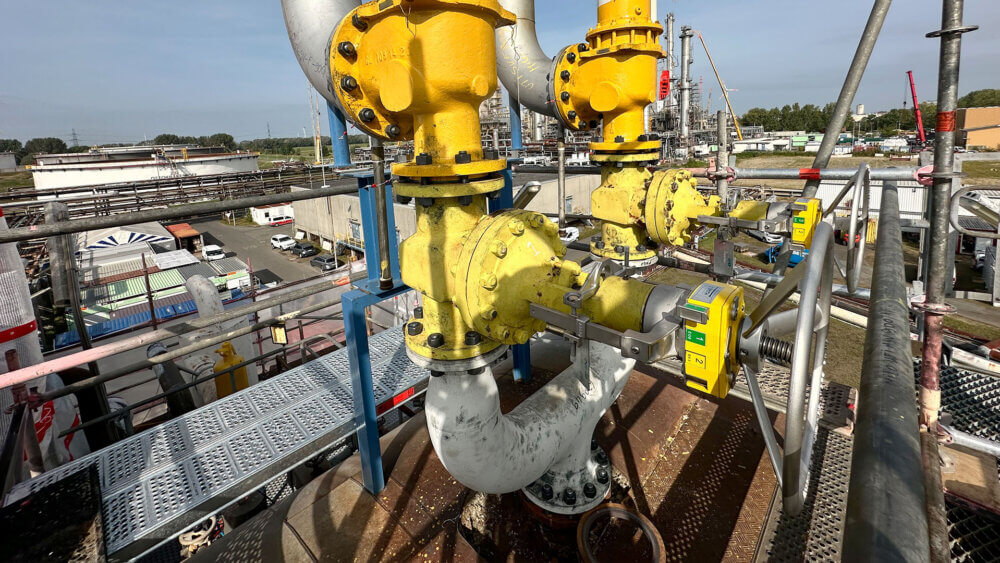Accidents in the process industry are mostly related to procedures that do not occur frequently and at the same time can have catastrophic results when performed incorrectly. 75% of the accidents in the process industry happen during startups, shutdowns and maintenance. In 50% of these accidents, root cause is incorrect operation of manual isolation valves. Valve interlocks are mostly used on Pressure Relief Valves (PSV), but there are many applications where valve interlocks are an added value by protecting people, the environment or company assets.
Pressure Relief Valves
Valve interlocks are mostly used on Pressure Relief Valves (PSV). In many cases, these are changed over only once a year. During this change over procedure it is of huge importance that an open path to relief is maintained. Block valves isolating the spare relief valve must be opened before the ones to be maintained are closed. As mistakes have to be avoided at all times, valve interlocks are installed on the block valves. In case of two safety valves, only one can be closed at any time.
Pipeline pigging
Pigging operations are generally recognized as highly dangerous and even deadly. Operators can get in contact with dangerous gasses, often under high pressure. Valve interlocks avoid human error and subsequently, dangerous incidents. Many different sequence options exist for a wide variety of pigging operations. Especially for pigging operations, integrating the characteristics of purely mechanical valve interlocks into new electronically powered solutions for control and safety can create a higher overall process safety level.
Inert gas systems
Inert Gas systems are often used on vessels like a FPSO to create safe storage on sea. Typically, at least one of the valves connecting the vessel to the inert gas system needs to be open at all times. By implementing mechanical valve interlocks on the block valves one line is always guaranteed to be open at all times.
Pump startup
High costs are involved when a pump breaks down due to a bad startup. Valve interlocks on the designated suction valve and control switch guarantee the start up is done correctly.
Flare lines
In a flare line it is essential for all valves to remain open during production to release pressure. Valve interlocks are used as a safety measure to lock the valves open. If more than one flare is used, valve interlocks also make sure that one flare line is always open during production.
Boiler blow down
For boilers you often need to blowdown through the drains to remove sludge deposits from within the vessel. With multiple boilers where each boiler has its own blowdown line into a shared vessel, it is important to blow down only one boiler at a time. Valve interlocks lock the individual drain valves and make certain that only one valve can be opened at a time.
‘2 out of 3’
When using pressure gauges or level sensors ‘2 out of 3’ is common. Typically 3 gauges are installed parallel and 2 out of 3 gauges or sensors need to be online at all times to get redundancy. By implementing mechanical valve interlocks on the block valves (often needle valves) only 1 line can be closed at a time.
Decoking
Typically in ethylene plants, cracking furnaces need to be decoked regularly. The incorrect operational sequence of the controls to gas, feed stock and decoke air to the furnace can cause catastrophic results. Valve interlocks guide operators through this manual operation safely, ensuring strict adherence to procedure.


